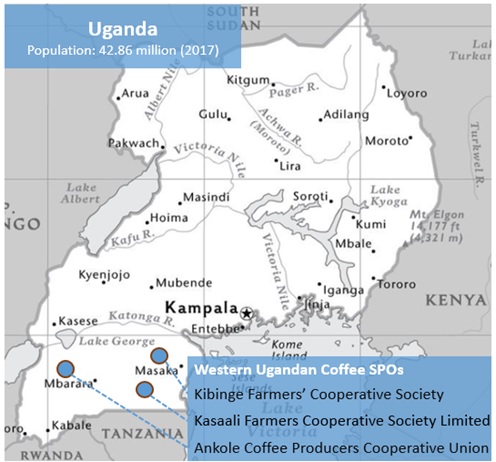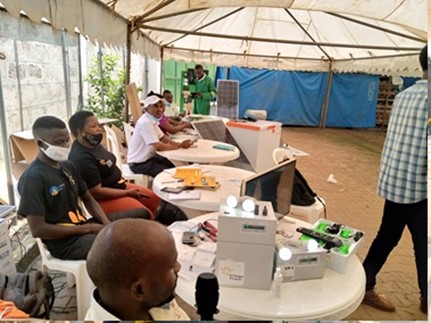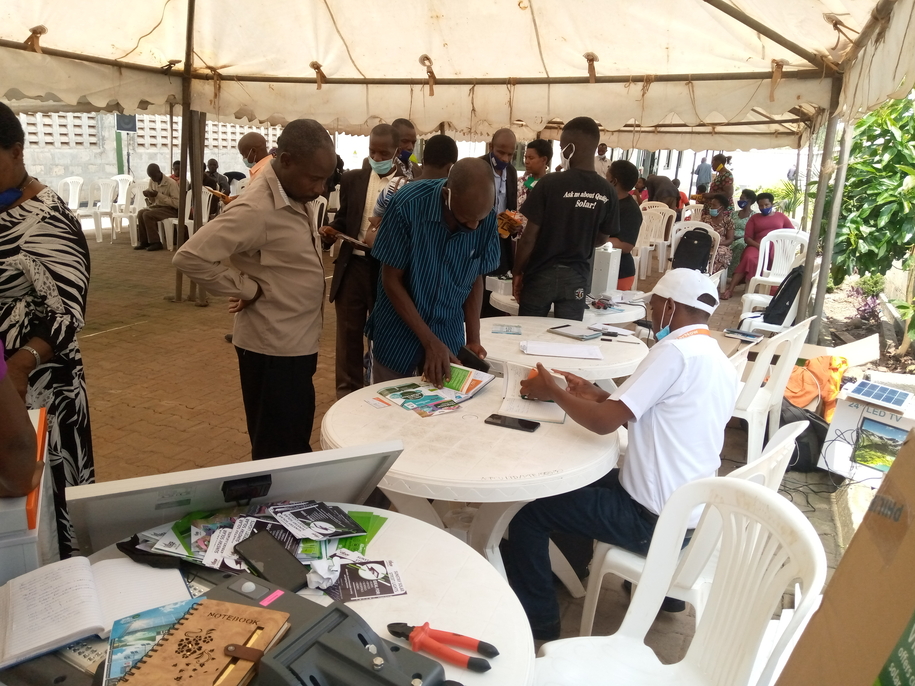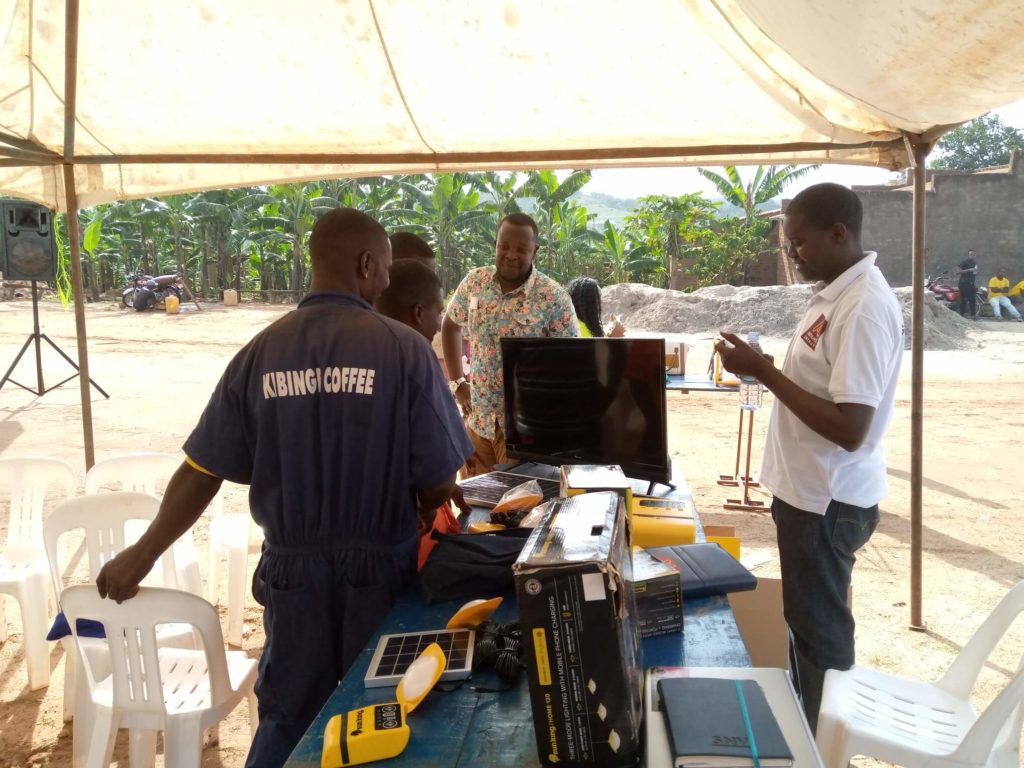by Brian Doe, Programme Development Manager at Fairtrade Foundation
Three Fairtrade coffee co-operatives in Uganda began the launch of new clean energy services for farmers during strict COVID-19 restrictions. Navigating this unforeseen challenge resulted in three key learnings about how to deal with unpredictability when working with farmers on long-term sustainability efforts.
Fairtrade co-operatives in Uganda branch out to secure solar energy for coffee farmers

In rural Uganda, three Fairtrade coffee co-operatives report that 65% of their members live without access to electricity and this is representative of communities across rural areas of the country. They are now seeking new ways to help their members access not just power, but clean and reliable solar energy.
To tackle this issue, these three co-operatives from Western and Central Uganda have been engaging directly with energy suppliers to help establish a reliable supply of solar energy to farms.
With the support of Fairtrade Africa and last-mile energy experts at Practical Action, these coffee co-operatives have established energy partnerships in Uganda with carefully vetted solar product suppliers. They are also piloting energy loans for those coffee farmers disconnected from the national electricity network and unable to afford quality energy products.
These new services will enable farmers to purchase new solar power systems for their homes, making a significant difference to their livelihoods.
Read about Fairtrade’s introduction to this work in Growing eco-friendly energy access through coffee co-operatives in Uganda.
Navigating the challenges of COVID-19 restrictions
A year of close consultation and planning with the co-operatives in Uganda led to a collective agreement with Fairtrade on the final design of a new energy access service to support coffee farmers.
However, in June 2021 the Ugandan government imposed 42 days of restrictions to tackle the spread of COVID-19 in the country. This occurred just as the Fairtrade pilot was set to launch, putting the project plan, designed by the co-operatives and Fairtrade Africa, at serious risk.
Despite this setback, Fairtrade Africa – using its expertise as a network founded on durable relationships with trusted producer organisations in the region – quickly adapted the programme to the unforeseen challenges, while also finding new ways to work remotely.
Empowerment and support: core learnings from dealing with unforeseen challenges

Three key strategies emerged from the experience of implementing a new project during the unpredictability of COVID-19 restrictions.
1. Farmer-led programme design
Fairtrade Africa and regional last-mile energy partner Practical Action ensured that the initial project implementation plan was co-created and led by the co-operative partners in Uganda. This included formal workshops and feedback sessions that brought together Fairtrade technical leads and co-operative leadership to formally agree with the membership base on the scope of energy services going forward.
2. producer organisations implement the programmes
Fairtrade Africa established relationships with project leads in each co-operative at the start of 2021. This allowed for training sessions and meetings to continue remotely and energy suppliers to be identified despite COVID travel restrictions in place across internal borders.
3. Supporting resilient long-term strategy
There was already a strong foundation of ongoing sustainability work in place with Ugandan coffee co-operatives dating back to 2017. This made the transition to managing project operations remotely a lot easier.
This is a key benefit of Fairtrade’s strategy to direct funding towards a long-term, coordinated sustainability strategy in the region, with every project connected to the goal of achieving sustainable livelihoods for farmers, rather than running short, standalone programmes.
With support from GIZ through the Green People’s Energy programme (GBE) on behalf of the German Federal Ministry of Economic Cooperation and Development (BMZ), this innovative project is enabling Fairtrade coffee co-operatives to test whether they can increase value and impact for farmers by serving as rural distribution co-ordinators and by facilitating credit resources for members to purchase and install cleaner, more reliable off-grid solar systems in their homes.
This energy access programme provides a new pathway for farmers to afford eco-friendly off-grid power. It’s opening the door to more sustainable livelihoods for farmers and if successful at scale, would dramatically increase opportunities to unlock access to clean and reliable energy across the wider Fairtrade network.

Spotlight on Anuel Energy
Anuel Energy is one local solar product supplier that has formalised partnerships with Fairtrade coffee cooperatives in Uganda to support the distribution of products to farmers. The supplier was recommended to the co-operatives through an innovative best practice consortium of Ugandan Energy Suppliers called SENDEA.
Anuel Energy is testing new ways to bundle demand for energy products from farmers in order to attract new sources of outside capital financing and has presented these potential strategies to the Fairtrade project team.
